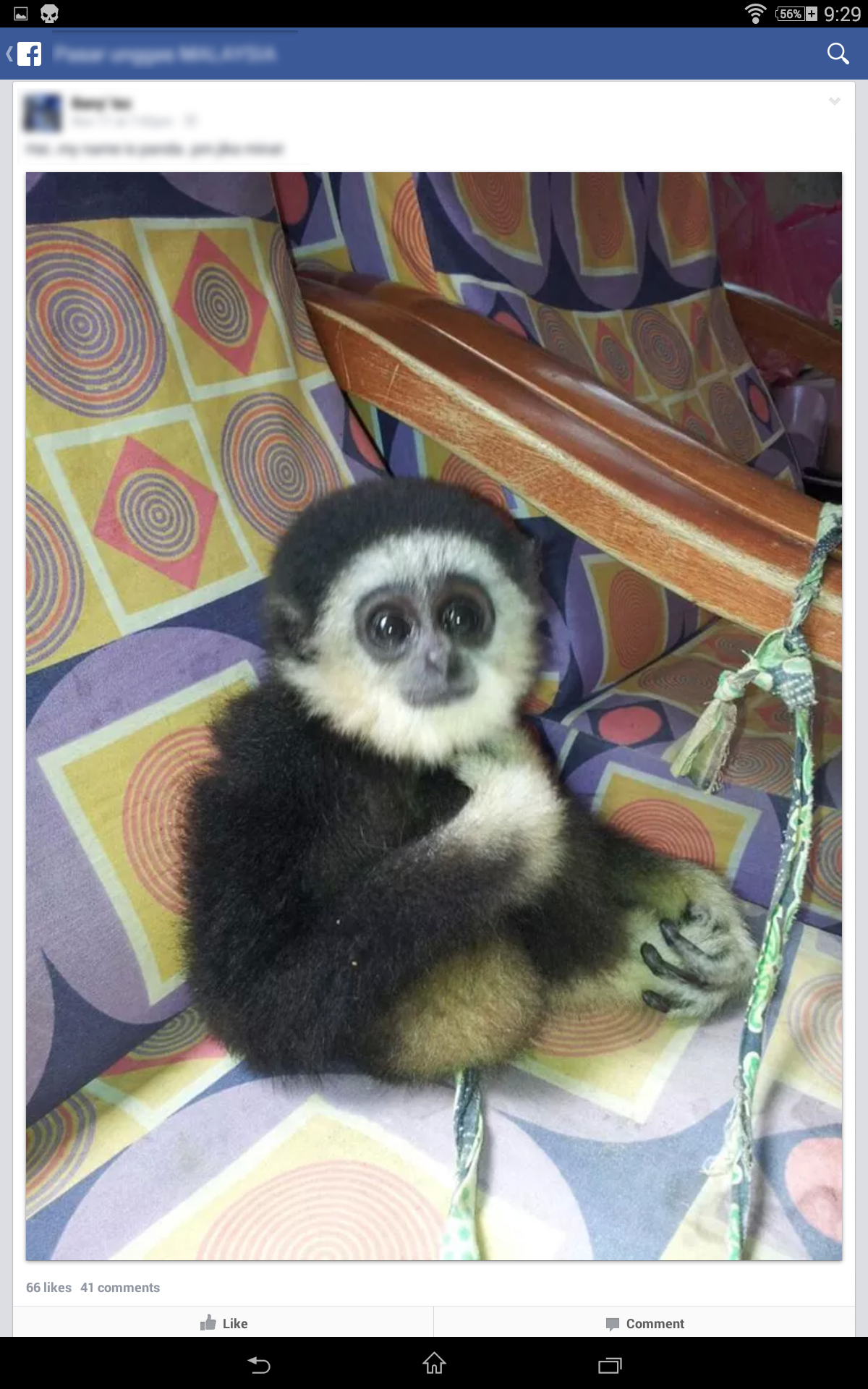
Facebook is being used as a market place for people illegally buying and selling endangered, threatened and iconic Malaysian animals, according to a new report just released by TRAFFIC, an organisation that monitors wildlife trading networks and seeks to highlight and help abolish unethical practises.
The report, Trading Faces: A Rapid Assessment on the use of Facebook to Trade Wildlife in Peninsular Malaysia, produced with the support of WWF-Netherlands, reveals that closed groups on Facebook are being used to advertise and sell live animals. Researchers discovered 300 formerly wild creatures ranging across 149 species were being offered for sale as pets, including sun bears, gibbons, otters and binturong, sometimes known as bearcat, which is listed as vulnerable on the IUCN Red List.
The discovery came as a shock to the organisation, because Peninsular Malaysia does not have open wildlife markets of the sort commonly seen in other parts of Southeast Asia. Particularly surprising was the evidence that more than half of the species being illegally traded were indigenous to Malaysia, reflecting a strange trend of keeping native wildlife as pets. Non-native species for sale included the Indonesia yellow-crested Cockatoo and the ploughshare tortoise from Madagascar—both protected under the Convention on International Trade in Endangered Species of Wild Fauna and Flora (CITES).
‘The rise of social media appears to have enabled the creation of a thriving marketplace for wild animals as pets where one previously didn’t exist in Malaysia,’ said one of the report’s authors, Kanitha Krishnasamy, Programme Manager for TRAFFIC in Southeast Asia.
The groups have up to 68,000 active members, with 106 individuals brazenly conducting most of the sales activity, clearly unconcerned about being caught. ‘Facebook does not allow the sale and trade of endangered animals and we will not hesitate to remove any content that violates our Terms of Service,’ said a Facebook spokesperson. ‘We are committed to working with TRAFFIC to help tackle the illegal online trade of wildlife in Malaysia.’
Aside from getting banned from Facebook, the online villains might face sterner justice from Peninsular Malaysia’s Department of Wildlife and National Parks (PERHILITAN), which has previously conducted operations against wildlife traders operating on the social networking site, carrying out 43 successful seizures, arresting 54 illegal traders and saving over 67 wildlife species from being traded illegally on Facebook. ‘If anyone is caught violating our law, they will face harsh penalties,’ barked Hasnan Yusop, PERHILITAN’s Director of Enforcement.
The biggest concern, of course, is that this is far from a problem isolated to Malayasia. The report strongly recommends closer collaboration between law enforcement agencies and Facebook to enable effective targeting of offenders, and implores social media sites to do more to raise awareness about the issue.
‘We believe it reflects a worldwide problem,’ said Sarah Stoner, a Senior Crime Data Analyst with TRAFFIC in Southeast Asia. ‘Social media’s ability to put traffickers in touch with many potential buyers quickly, cheaply and anonymously is of concern for threatened wildlife and enforcement agencies which demands nothing short of a concerted global response.’


